Unleash the Thrill of Fishing
- Embark on a Journey to Master the Art of Angling
- Discover Hidden Fishing Gems Across the Globe
- Equip Yourself with Top-Tier Gear for Unforgettable Adventures
Explore Premier Fishing Destinations
- Venture into Serene Canadian Lakes and Vibrant Australian Coasts
- Uncover Unparalleled Fishing Opportunities in Exquisite Locations
- Plan Your Next Fishing Escape with Our Expert Guides and Tips
Gear Up for Success on the Waters
- Make Informed Decisions with Our In-Depth Reviews and Comparisons
- Invest in High-Quality Fishing Equipment and Amplify Your Catch
- Transform Your Fishing Gear into Your Gateway to Success
Welcome to Fishing Secrets Revealed, your gateway to becoming a master angler.
Whether you’re a seasoned angler seeking to refine your skills or a novice eager to embark on an unforgettable fishing adventure, Fishing Secrets Revealed has the knowledge and inspiration you need to transform your fishing experience.
Dive into our treasure trove of blog posts, crafted by seasoned anglers and industry experts, and uncover the secrets that have long been elusive to even the most experienced fishermen. From understanding fish behavior to mastering bait selection and lure presentation, we’ll equip you with the knowledge and techniques to reel in bigger catches and elevate your fishing prowess to new heights.
Prepare to be captivated by our immersive fishing tales, each one a testament to the thrill, camaraderie, and serenity that define the sport of fishing. Relive the excitement of landing a trophy catch, the joy of sharing the experience with friends, and the profound connection with nature that fishing fosters.
Join us on this journey of fishing enlightenment and discover the secrets that will transform you into a true master angler.
Let Fishing Secrets Revealed be your guide as you explore the depths of the fishing world, master its intricacies, and experience the unparalleled thrill of the catch.
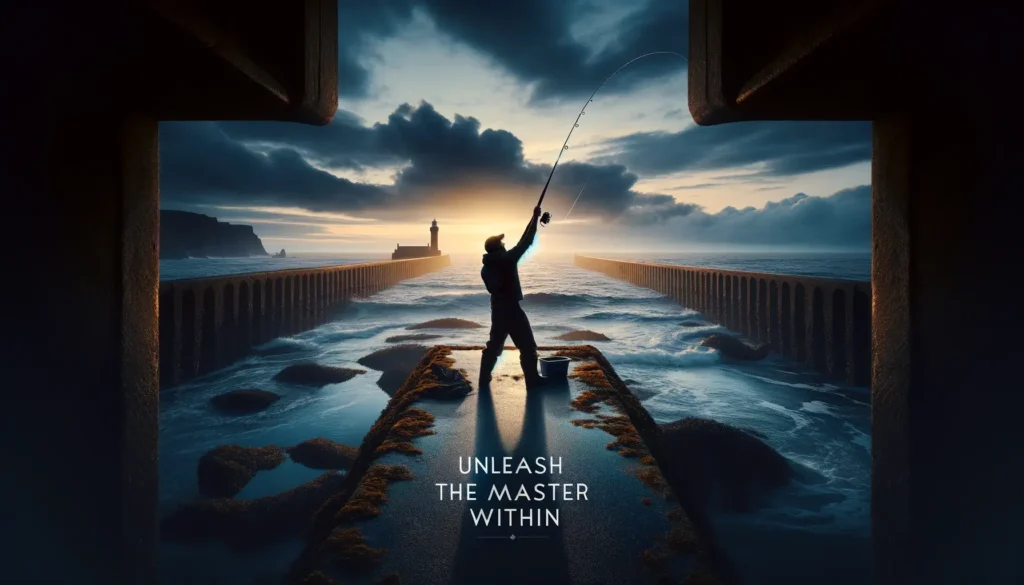
Unleash the Master Angler Within
Embark on an extraordinary journey of fishing enlightenment as we unveil the secrets that have long eluded even the most seasoned anglers. Explore our vast treasure trove of blog posts, brimming with insights, strategies, and tactics that will transform your fishing experience. Dive into the depths of our knowledge and discover the hidden techniques that will elevate your skills to a whole new level.
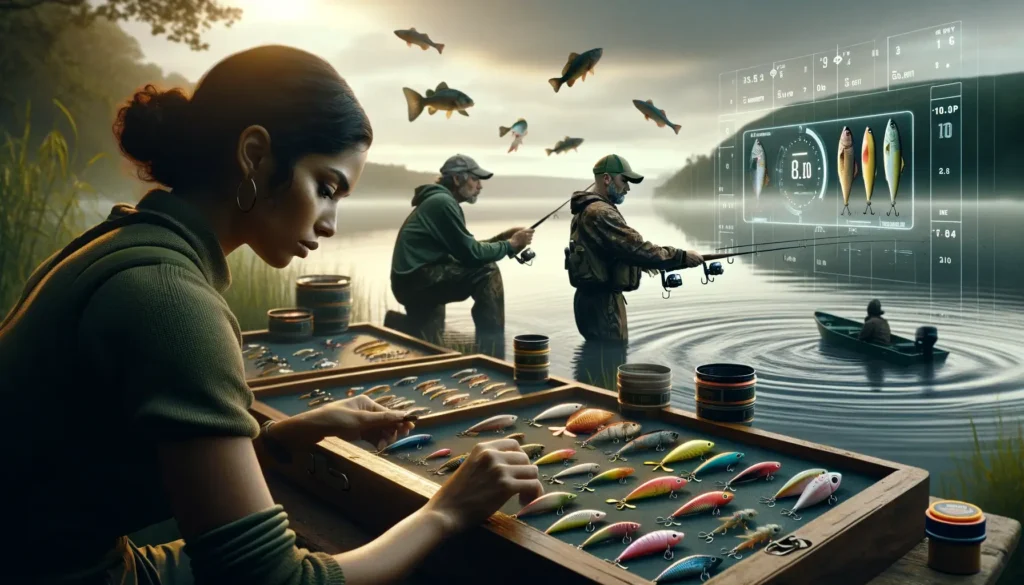
Unlock the Secrets of Fishing Mastery
With every blog post you devour, you’ll gain a deeper understanding of the fish’s behavior, the intricacies of lure selection, and the art of casting with precision. Become a master of bait selection, tackle optimization, and weather forecasting, ensuring you’re always prepared to conquer any fishing challenge.

Journey into a World of Immersive Fishing Tales
Immerse yourself in captivating fishing tales that will spark your passion and ignite your adventurous spirit. Experience the thrill of landing a trophy catch, the camaraderie of fishing with friends, and the serenity of connecting with nature.

Discover the Secrets Every Angler Yearns to Know
Empower yourself with the knowledge that will elevate your fishing prowess to new heights. Uncover the secrets of reading fish behavior, identifying prime fishing spots, and mastering the delicate art of lure presentation.

Join Us on the Adventure
Step into the world of Fishing Secrets Revealed and embark on a journey of fishing enlightenment. With every blog post you read and every tale you absorb, you’ll cultivate the skills and knowledge to become a master angler. Share your newfound expertise with fellow enthusiasts and elevate the fishing community to new heights.
The 10 Most Fascinating Facts About Fish and Angling
Delve into the captivating world of fishing and angling as we explore ten astonishing facts that will transform your understanding of this timeless pursuit.
Unveiling the Future of Fishing: Trends Shaping the Realm
Embark on a journey into the evolving landscape of fishing, where sustainability, innovation, and community converge to redefine the sport.
Discover the top 5 trends that are shaping the future of fishing, transforming the way we interact with the aquatic world.
Join us as we explore these trends and embrace the future of fishing.
Together, we’ll continue to cherish this sport, protect our aquatic resources, and forge a deeper connection with the natural world.
Sustainability: Preserving Our Aquatic Heritage
As the demand for seafood grows, anglers are embracing sustainable practices to protect our precious marine ecosystems.
From barbless hooks to catch-and-release techniques, we’re ensuring the longevity of fish populations and the health of our oceans.
Social Media: Connecting the Fishing Community
Social media has become an epicenter for anglers, fostering connections and sharing knowledge across the globe.
From online forums to live chats, we’re collaborating and learning from each other, creating a vibrant and engaged fishing community.
Technology: Empowering Anglers with Innovation
Technology is revolutionizing fishing, equipping anglers with tools to navigate waters, locate fish, and optimize their techniques.
From sonar and fish finders to GPS and smartphone apps, we’re harnessing technology to elevate our fishing experiences.
Fly Fishing: A Timeless Art Regaining Popularity
Fly fishing, a traditional form of fishing that involves casting artificial flies, is experiencing a resurgence in popularity.
Its intricate techniques and connection to nature are captivating a new generation of anglers.
Fishing for Food: A Reconnection with Sustenance
The desire to connect with the source of our food is driving a growing interest in fishing for sustenance.
We’re rediscovering the health benefits of seafood, the satisfaction of catching our own meals, and the joy of preparing a fresh, local catch.
Unveiling the Top 10 Fishing Destinations in North America: Embark on an Epic Fishing Adventure
Cast your line into the pristine waters of Alaska’s Kenai River, home to trophy-sized salmon. Brave the grandeur of Glacier National Park, where rainbow trout and bull trout await. Or, immerse yourself in Yellowstone National Park’s diverse ecosystem, where trout, pike, and catfish thrive.
Embark on a grand journey to the Grand Canyon National Park, where trout, bass, and catfish dance amidst breathtaking landscapes. For the ultimate wilderness retreat, venture into Minnesota’s Boundary Waters Canoe Area Wilderness, boasting over 1,200 miles of canoe routes and bountiful fishing for walleye, northern pike, and smallmouth bass.
Saltwater anglers, rejoice! The Florida Keys beckon with unparalleled opportunities to reel in marlin, tuna, sailfish, and mahi-mahi. Lake Champlain in Vermont offers a treasure trove of lake trout, smallmouth bass, and brown trout. And for those seeking a New York adventure, the St. Lawrence River awaits, teeming with salmon and other freshwater species.
For freshwater aficionados, Lake Erie in Ohio provides a vast expanse of walleye, perch, and muskie. And if you dare to challenge the Chesapeake Bay, prepare to encounter striped bass, blue catfish, and shad in this vibrant ecosystem.
These top 10 fishing destinations are just a taste of the vast array of fishing paradises awaiting you in North America. With so much to explore, your perfect fishing adventure awaits!
Kenai River, Alaska
Home to world-class salmon fishing, the Kenai River is a bucket-list destination for anglers of all levels.
Glacier National Park, Montana
The pristine waters of Glacier National Park offer a variety of fishing opportunities, including cutthroat trout, rainbow trout, and bull trout.
Yellowstone National Park, Wyomin
Yellowstone’s diverse ecosystem is home to a variety of fish species, including trout, pike, and catfish.
Grand Canyon National Park, Arizona
Anglers can fish for trout, bass, and catfish in the waters of the Grand Canyon.
Boundary Waters Canoe Area Wilderness, Minnesota
The Boundary Waters is a vast wilderness area with over 1,200 miles of canoe routes and abundant fishing opportunities for walleye, northern pike, and smallmouth bass.
Saltwater Fishing in the Florida Keys
The Florida Keys offer world-class saltwater fishing for marlin, tuna, sailfish, and mahi-mahi.
Lake Champlain, Vermont
Lake Champlain is a large freshwater lake with a healthy population of lake trout, smallmouth bass, and brown trout.
St. Lawrence River, New York
The St. Lawrence River is a popular destination for salmon fishing, as well as for catching trout, walleye, and catfish.
Lake Erie, Ohio
Lake Erie is one of the largest freshwater lakes in the world and is home to a variety of fish species, including walleye, perch, and muskie.
Chesapeake Bay, Maryland
The Chesapeake Bay is a vital ecosystem and is home to a variety of fish species, including striped bass, blue catfish, and shad.
Ignite Your Fishing Passion: Equip Yourself with the Top Trending Fishing Products
Gear Up for Your Next Fishing Adventure: Equip Yourself with the Top Trending Products
Embrace the thrill of catching fish and immerse yourself in the serenity of the outdoors with the best fishing equipment and clothing on the market.
Unleash Your Inner Angler with Cutting-Edge Fishing Rods and Reels
- Variety for Every Fishing Style: Explore a wide range of fishing rods and reels designed for different fishing techniques, from casting lightweight lures to reeling in hefty catches.
- High-Performance Materials: Experience the power and precision of rods crafted from lightweight graphite and durable reels equipped with advanced features.
- Technology-Enhanced Fishing Experiences: Enhance your fishing expeditions with rods and reels integrated with innovative technologies, such as sonar and line counter systems.
Master the Art of Lure Selection with Trendy Bait and Tackle Boxes
- Variety for Every Fish: Discover a vast array of lures and baits tailored to specific fish species and fishing techniques, from bass-catching crankbaits to trout-attracting nymphs.
- Innovative Designs for Optimal Performance: Experience the latest innovations in lure and bait design, ensuring maximum fish attraction and hooking potential.
- Organized Storage for Your Tackle Collection: Invest in tackle boxes that provide efficient organization and easy access to your essential fishing tools.
Stay Comfortable and Prepared in Style with Fishing Apparel
- Functional and Durable Designs: Equip yourself with fishing apparel that combines functionality and style, ensuring comfort and protection in various weather conditions.
- Waterproof and Breathable Fabrics: Experience the benefits of moisture-wicking and water-resistant fabrics that keep you dry and comfortable throughout your fishing adventures.
- Sun Protection for Your Eyes and Skin: Guard your eyes from the glare of the sun with high-quality polarized sunglasses and protect your skin with long-sleeve shirts and hats.
Disclosure:
When you purchase a service or a product through our links, we sometimes earn a commission, at no extra cost to you.
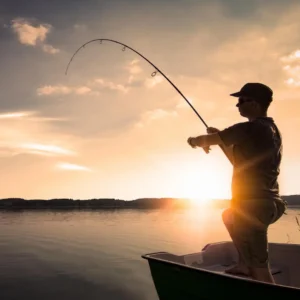
Fishing Locations
- Unveiling the World’s Enchanting Fishing Havens
- Immerse Yourself in a World of Fishing Adventures
- Discover Hidden Gem Fishing Destinations
- Explore the Allure of Global Fishing Paradises
- Experience the Thrill of Fishing Like a Local
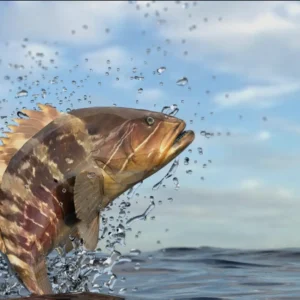
Fishing Species
- Delve into the Fascinating World of Fishing Species
- Uncover the Secrets of Aquatic Life
- Embrace the Knowledge of Underwater Creatures
- Learn to Identify and Appreciate the Wonders of Fishing Species
- Build a Stronger Connection with the Aquatic Ecosystem

Fishing Resources
- Enhance Your Fishing Skills and Knowledge
- Stay Informed and Up-to-Date with Fishing Regulations
- Learn About Conservation Efforts and Support the Protection of Aquatic Life
- Empower Yourself to Become a More Responsible and Effective Angler
- Transform Your Fishing Experiences into Memorable Adventures

Fishing Records
- Unearth the Extraordinary World of Fishing Records
- Immerse Yourself in a Chronicle of Monumental Catches
- Witness the Astonishing Achievements of Anglers Worldwide
- Embark on a Quest to Break Fishing Records and etch your Name in History
- Discover the Thrill of Pushing Fishing Limits and Setting New Standards

Fishing Techniques
- Master the Diverse Techniques of Angling
- Elevate Your Fishing Skills with Expert Tips and Guides
- Embrace the Refined Approaches of Fly Fishing, Trolling, and Ice Fishing
- Increase Your Catches and Experience the Joy of Skillful Angling
- Enhance Your Fishing Confidence and Become a Pro
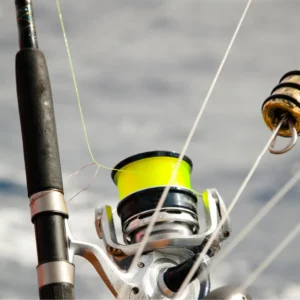
Fishing Gear
- Navigate the Vast Sea of Fishing Gear with Our Insightful Guides and Reviews
- Empower Yourself with Essential Rods and Reels, Innovative Gadgets, and More
- Invest in the Best Fishing Tools for a Fruitful Adventure
- Maximize Your Fishing Success with Top-Quality Equipment
- Embrace the Thrill of Bringing Home Your Dream Catch with the Right Gear

Fishing Competitions
- Embrace the Thrill of Competitive Fishing
- Master Your Skills and Strategies
- Test Your Expertise against Fellow Anglers
- Experience the Adrenaline Rush of Competition
- Create Unforgettable Moments in the Fishing World
Latest Blog Posts
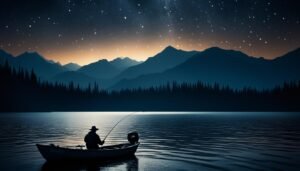
Night Fishing Adventures: Unveiling the Secrets of Fishing After Dark
Unlock the thrill of night fishing in Canada! Learn expert tips and embrace the excitement of Fishing After Dark with our guide.

Reading the Water: Understanding Signs of Fish Activity
Discover how to spot Signs of Fish Activity and increase your fishing success. Learn to read the water for a rewarding catch in Canada!
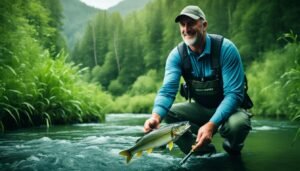
Protecting Our Waters: How Anglers Can Promote Conservation
Welcome to the world of angling, where the thrill of the catch meets a deeper commitment to environmental stewardship. Have you ever wondered how anglers play a vital role in protecting our waters and promoting conservation? Is it merely a…
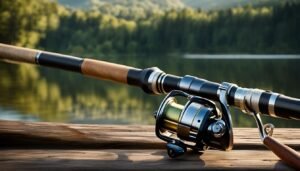
Fishing Licenses in US: Your Essential Guide
Fishing licenses are a must-have for anyone looking to enjoy the thrill of angling in the waters of the United States. Whether you’re a resident or a tourist visiting this vast and diverse country, understanding the rules and regulations surrounding…
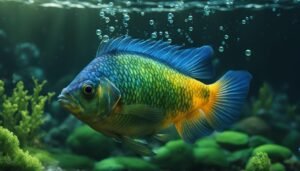
Do Fish Urinate? Uncover Aquatic Mysteries!
Welcome, curious explorer! Today we embark on a journey to unravel the mysteries of the underwater world. Have you ever wondered if fish urinate? Join us as we dive deep into the enigmatic realm of fish excretion, where fascinating secrets…

Can Fish Swim Backwards? Uncover the Mystery!
Have you ever wondered if fish can swim backwards? Fish locomotion is a fascinating topic that has intrigued scientists and enthusiasts for years. In this article, we dive into the world of fish swimming and explore the possibility of reverse…

Reel in the Thrills: Your Guide to Wahoo Fish
Welcome to your comprehensive guide on Wahoo fishing! If you’re looking for an adrenaline-pumping fishing experience, targeting the Wahoo fish is the way to go. Renowned for their speed and thrilling fights, Wahoo fish are a top choice for anglers…
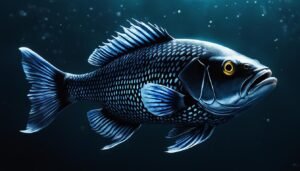
Can Fish See in the Dark? Unveiling Aquatic Vision
Have you ever wondered how fish navigate the depths of the ocean when it’s pitch black? The fascinating world of fish vision in low light conditions is a topic that has intrigued scientists and enthusiasts alike. From the darkest corners…

Are Fish Reptiles? Uncover the Truth Here.
Are fish considered reptiles? This question has intrigued scientists and animal enthusiasts for years. In this article, we will delve into the fascinating world of fish and reptiles to uncover the truth behind their classification. By exploring their evolutionary journey,…

